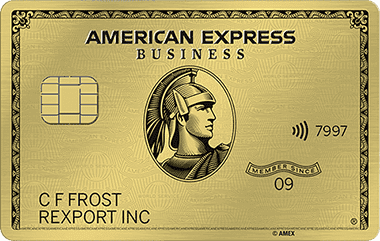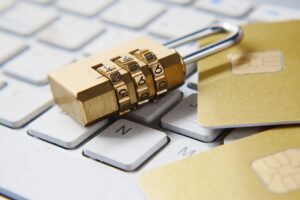Credit cards are in rage nowadays with on average every individual in the USA carrying 6-8 credit cards. As per Experion, in 2021 on average a US-based customer holds a debt of just over $5200 on their credit card. This has decreased by 1.8% compared to 2020. There are more than 170 million credit cards issued to customers in the USA alone. As the usage of credit cards is increasing, card members should focus on improving the safety and security of using them.
The usage of Credit cards or plastic money has exploded in the last 20 years. With online payments becoming increasingly popular, credit cards have emerged as a choice of payment method. Some of the popular credit cards in the market include Chase, Discover, American Express, and Visa.

As the usage of credit cards is increasing, so are the associated thefts and frauds on credit cards. If your credit card information is stolen it may end up on the dark net. It can be used by criminals to make fraudulent purchases or sell to other criminals.
It is important to keep your credit card safe while making online purchases. Here are some tips on how to keep your credit card safe while doing online payments:
1. Use a secure payment method
When making online purchases, make sure to use a secure payment method. Use a credit card with a secure chip or a 2Factor card. Virtual payment services like PayPal, or opting for virtual credit cards can also help improve security. To know more about Virtual Credit Cards visit our post.
2. Keep your credit card information secure
Keep your credit cards information, such as the card number, expiration date, and security code, in a safe place. Avoid sharing this information with anyone unless you are making a purchase. Avoid giving it to even a trusted family member or friend.
3. Use a unique password to improve safety and security
Use a unique password for each online account that you have, including your online shopping accounts. Avoid using the same password for multiple accounts. This can make it easier for hackers to gain access to your accounts. These basic security features can help a customer protect their personal and financial information from fraudsters.
4. Use Strong passwords for your online accounts and security pins
The most common password used by people is either their date of birth or their anniversary. Always use strong passwords for all your online accounts. With hackers looking to exploit such passwords, do not fall into the fallacy of easier passwords. Better to use difficult passwords.

Users can use a phrase that is personal to them to generate a new password. Instead of using a password like “I love rockers 92 games” generate a password like “i143rckrs92G@me” or “ILoverkrs92G@me”.
Always make a habit of changing your passwords every 3 to 4 months. Use a combination of words and numbers to make up your passwords.
5. Shop at reputable websites
Be careful about where you shop online. Only shop at reputable websites that have secure checkout processes and strong privacy policies. Avoid clicking on links from unknown sources or entering your credit card information on unsecured websites.
Be extra vigilant that the payment you are making is for the intended service and that the website or the app is not putting any additional hold or a monthly charge on your card. Opt for virtual credit cards or virtual wallets like Venmo or Paypal to make payments on any website you do not use regularly.
Look for the PCI seal below on the websites you are using. PCI standards are guidelines that online websites and eCommerce platforms should abide by to confirm that they either do not store credit card information or they store it in an encrypted form to prevent misuse in case of exposure.
6. Monitor your credit card statements regularly
Review your credit card statements regularly to make sure all the transactions are correct and that there are no unauthorized charges. If you notice any discrepancies, contact your credit card issuer immediately. If a customer is a vigilantes, they can flag off an unscrupulous transaction appearing on their credit cards.
Nowadays, all credit card companies have mobile apps with notifications for any charge or transaction made on the card. Customers should keep these notifications always on and should necessarily monitor these transactions.
7. Keep your computer and mobile and software up to date
Keep your computer and software up to date with the latest security patches and updates. This can help protect a customer’s computer from malware and other security threats that could be used to steal their credit card information.
Always be vigilant of your mobile phone also, and keep it clean, secure, and free of malware. As more and more people access financial information over mobile phones, it is prudent to keep your mobile phone updated as well with the latest security updates and patches. People are very wary of using their laptops or computers against suspected links or messages, but this should also be extended to mobiles. Phishing attacks are much easier to target on mobile phones.
8. Avoid using your credit cards for International transactions
Banks and credit card issuers charge markup fees as high as 3-5% on international transactions. Bad actors may also lurk for potential victims and if the security of the website you are using is not top-notch, the customers end up losing their financial data. Also, any transaction in a foreign jurisdiction may not be covered by the Protection program offered by the card issuer bank. It is always better to use virtual wallets or virtual credit cards for such international transactions.
9. Avoid handing over your credit cards at restaurants or shops
If you hand over your credit card to the waiter or server, it is out of your sight and control. This can leave it vulnerable to fraud or theft. The waiter or server may copy down your credit card information or skim the card using a skimming device. Handing over your credit card can also make it easier for the restaurant to add unauthorized charges to your bill, such as tips or additional fees. This can be difficult to dispute later on, as you have already handed over your credit card and may not have a clear record of what was charged.
It is generally safer and more convenient to avoid handing over your credit card in restaurants. Instead, you can pay with cash or a mobile payment app, which will give you more control over your payment and protect your credit card from fraud or unauthorized charges.
The safety and security of your cards are in your hands
These simple yet effective tips can help a customer use their credit cards easily, safely, and securely. Make security your major thought. Always think of Security First when accessing or using your credit cards on Public Websites.
